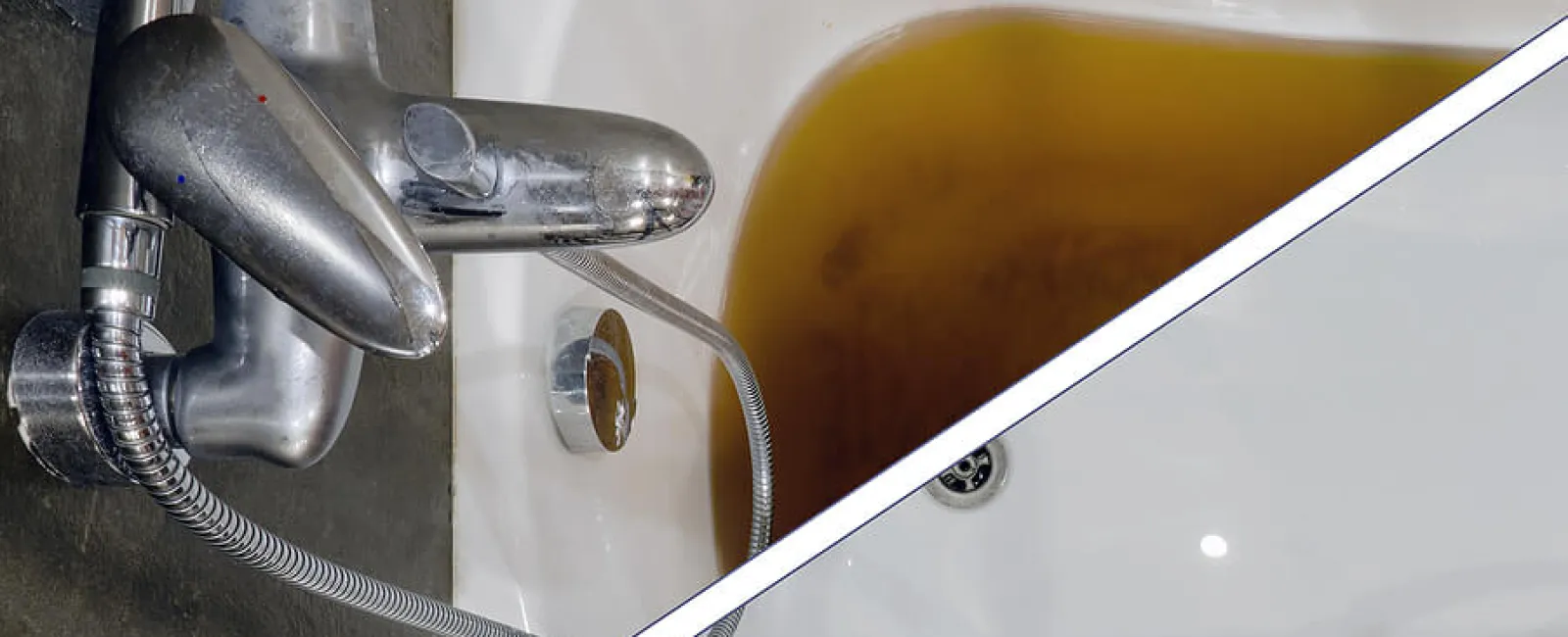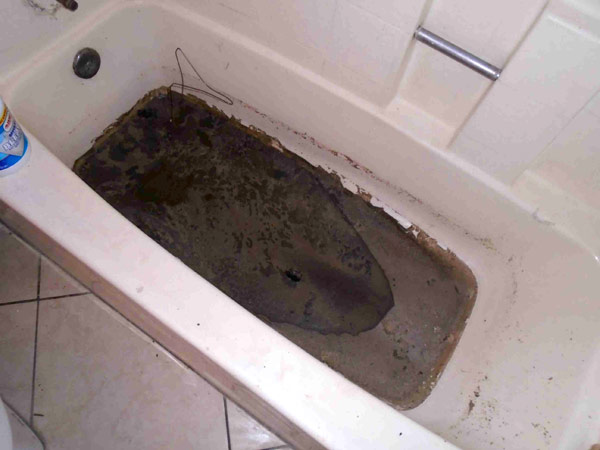What are your concepts on Water Coming up Bathtub Drain?

Sewage backup in the bathtub can be a stressful and unhygienic issue for any kind of home owner. Not just is it bothersome, but it also poses serious health risks and suggests underlying problems with the plumbing system. Comprehending why sewer is coming up via the tub is critical for taking appropriate activity to resolve the problem efficiently.
Introduction to the Problem
Typical Reasons for Sewer Back-up
Obstructions in the Drain Line
One of the most typical reasons for sewage back-up is an obstruction in the drain line. This can occur as a result of the buildup of debris, oil, or foreign things in the pipelines, avoiding proper circulation and causing sewer to support into your bath tub.
Tree Origin Intrusion
Tree origins seeking moisture and nutrients can penetrate sewer lines via small splits or joints. In time, these origins can grow and increase, triggering substantial damage to the pipes and bring about sewage backup concerns.
Understanding the Issue
When sewer draws back up right into the bathtub, it's a clear indicator of a problem with the drainage system. The wastewater that must be moving far from your home is rather discovering its back into your living space, which can lead to substantial damage and carcinogen.
Possible Causes
Several elements can add to sewer back-up in the tub. From obstructions in the drain line to problems with the plumbing infrastructure, identifying the source is necessary for discovering an option.
Aging Facilities
Older homes may have obsoleted plumbing systems that are a lot more at risk to rust, cracks, and deterioration. As pipelines age, they become extra susceptible to leakages and clogs, enhancing the likelihood of sewer back-up events.
Heavy Rainfall or Flooding
Throughout durations of heavy rainfall or flooding, the sewer system might come to be overwhelmed with excess water, causing back-ups and overflows. This can result in sewage backing up into bathtubs and various other components inside the home.
Indications of Sewage Back-up
Foul Odors
Unpleasant smells rising from drains or fixtures, particularly in the restroom, might show sewage back-up concerns. These odors are frequently strong and consistent, signifying a trouble that calls for prompt focus.
Slow Draining Fixtures
Bath tubs, sinks, and bathrooms that drain slowly or otherwise in any way could be experiencing sewage backup. If numerous components are impacted concurrently, it's most likely that the problem stems from a common point, such as the main sewage system line.
Gurgling Noises
Weird gurgling or gurgling noises originating from drains when water is running in other places in your home are a sign of air entraped in the plumbing system. This air buildup can result from sewer back-up and ought to be examined immediately.
Health Risks Related To Sewage Back-up
Contamination of Supply Of Water
Sewer back-up can pollute the water system in your house, positioning a severe health risk to you and your household. Exposure to contaminated water can cause intestinal concerns, skin infections, and various other ailments.
Mold and mildew Development
Wetness from sewage backup can create optimal conditions for mold development in your home. Mold spores can exacerbate respiratory troubles and create allergies in sensitive individuals, making prompt clean-up necessary.
Spread of Condition
Sewer contains damaging germs, infections, and parasites that can cause a variety of illness, including liver disease, cholera, and gastroenteritis. Entering contact with sewage or contaminated surfaces puts you in jeopardy of infection.
Tidying up After Sewer Back-up
Sanitation Procedures
Completely disinfect and sanitize impacted areas after sewage backup to get rid of dangerous bacteria and stop mold and mildew growth. Use proper cleansing products and protective equipment to ensure risk-free and efficient clean-up.
Reconstruction of Influenced Locations
Fix any type of damage to flooring, walls, or fixtures triggered by sewage backup. Depending on the degree of the damage, you might need to change carpets, drywall, or other products to recover your home to its pre-loss problem.
Immediate Actions to Take
Switching Off Water
In the event of sewer backup, it's important to turn off the water supply to prevent more contamination and damage. Find the major water shutoff valve in your home and closed it off until the problem can be settled.
Calling a Professional Plumber
Handling sewer back-up is not a do it yourself job. Get in touch with an accredited plumber with experience in taking care of sewage-related issues to analyze the scenario and perform required repair work or clean-ups.
Preventing Contact with Infected Water
Till the sewer backup is settled, stay clear of contact with infected water to prevent the spread of bacteria and virus. Use safety equipment if you must remain in the damaged location and clean your hands thoroughly later.
Safety nets
Regular Upkeep of Sewage System Lines
Set up regular evaluations and maintenance of your sewage system lines to recognize and attend to prospective issues prior to they escalate right into significant problems. This can consist of clearing out debris, inspecting for tree origin breach, and repairing any broken pipes.
Mounting Backwater Shutoffs
Consider setting up bayou valves in your plumbing system to avoid sewer from flowing back right into your home during periods of heavy rainfall or flooding. These valves automatically close when water starts backing up, safeguarding your residential or commercial property from contamination.
Appropriate Disposal of Family Waste
Prevent purging anything other than toilet paper and human waste down the bathroom to prevent blockages and clogs in the sewage system line. Dispose of grease, oil, and other household chemicals appropriately to reduce the risk of plumbing troubles.
Why is there sewage coming up from my bathtub?
These gas fumes, like hydrogen sulfide – the gas that leaves a rotten egg smell in its wake and is highly flammable and toxic – can be hazardous to your health. Sewage poses major health risks as it contains harmful bacteria and microorganisms that can be dangerous if exposed to them.
Sewage cleanup should be considered an emergency.
So, why is there sewage coming up from your bathroom? There are several common causes of a sewage backup.
The most common reason for sewage coming up through your bathroom is a clogged sewer line. All plumbing in your bathroom connects to a single drain pipe that leads to the sewer line under your house. This drain line carries all wastewater and sewage away from your home to the city’s sewer system.
When the sewer line becomes clogged or blocked, wastewater has nowhere to go but back toward your house. This results in sewage coming up through your drains, often starting with your tub or shower.
Another culprit may be the sewage ejector pump, which is used when a bathroom, laundry room or any other type of plumbing fixture is located below the level of the main sewer or septic line flowing from the house. Most commonly, ejector pumps are used in homes with basement bathrooms or laundry rooms.
When you experience sewage coming up through your bathtub, it’s always best to contact a professional. Attempts to fix a clogged sewer line without experience often lead to more plumbing damage.
Make sure that no one enters the affected area, and open as many windows as possible. Pre-treat the flooded area with small splashes of chlorine bleach. Wear protection gear like rubber gloves, a mask, and water-resistant coveralls.
https://www.shawlocal.com/the-herald-news/sponsored/2022/08/17/omega-plumbing-10199038/

I stumbled upon that review on Water Coming up Bathtub Drain while exploring the search engines. So long as you enjoyed reading our blog post kindly make sure you remember to pass it around. Thank you for being here. Kindly come by our website back soon.
Book Appointment
Comments on “Investigating Why Sewage Comes Up Through the Bathtub”